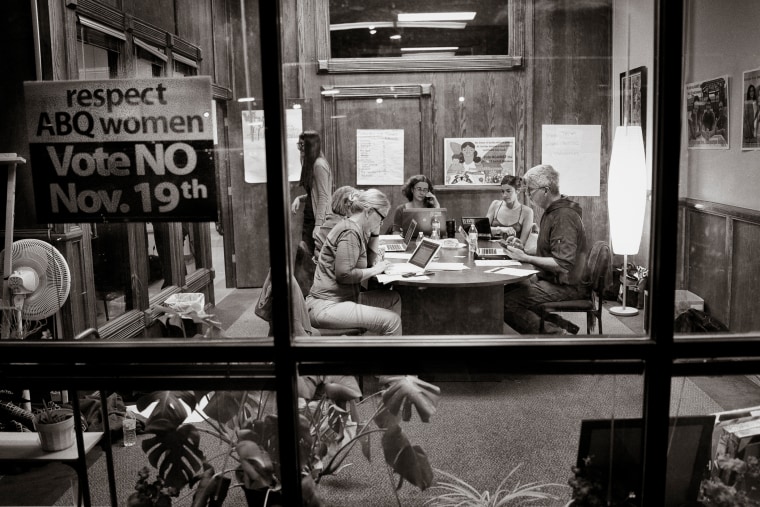Earlier this week, voters in Albuquerque voted down a city-wide measure that would have banned abortion after 20 weeks, by a ten-point margin. According to voter data analyzed by ProgressNowNM, the pro-choice side has women to thank for it.
“Eleven thousand more women--almost three times more women than men, in terms of additional turnout--came out in the municipal abortion election than did in the general six weeks earlier,” said Patrick Davis, the group’s executive director.
Women make up 54% of registered voters in Albuquerque, and they constituted the same proportion in the general election in October, when 68% of voters went for the Republican incumbent for mayor.
But in the special election to decide the 20-week ban, women made up 58% of voters. The ban was defeated, 54-45.
The result also showed that Latino voters, including Latina women, weren’t swayed by the anti-abortion arguments. They make up nearly half of the city’s population, and ban supporters had pinned their hopes on Catholic and evangelical Latinos. Opponents of the ban have pointed out that their coalition included two groups led by Latinas, Young Women United and Strong Families New Mexico.
Although not all public polling shows a gender gap on abortion, the team behind Virginia governor-elect Terry McAuliffe has said the issue helped account for a 9-point gender gap in his favor earlier this month. He won 59% of voters who said abortion was their top issue.
In the wake of the defeat in Albuquerque, anti-abortion groups were doing some soul searching. “Two words: Fetal Abnormality,” wrote Students for Life president Kristan Hawkins, referring to the fact that the ban didn’t include exceptions in cases of such conditions, although they are usually detected after 20 weeks. She didn’t propose that future bans include such exceptions, though. Instead, she said the movement needed to find “a better way to deal with the loss or impending loss of a child” – that is, a better way to tell women who want to end a doomed pregnancy that they should remain pregnant for up to four more months and give birth, regardless of the prognosis for the fetus or the woman's preferences.
On the ground, Elisa Martinez, executive director of a group working to pass the ban, blamed “the truth truck” and other shocking imagery of dismembered, fully-developed fetuses. She told The New York Times, “The signs, the graphic pictures, they hurt us much more than they helped us.”
